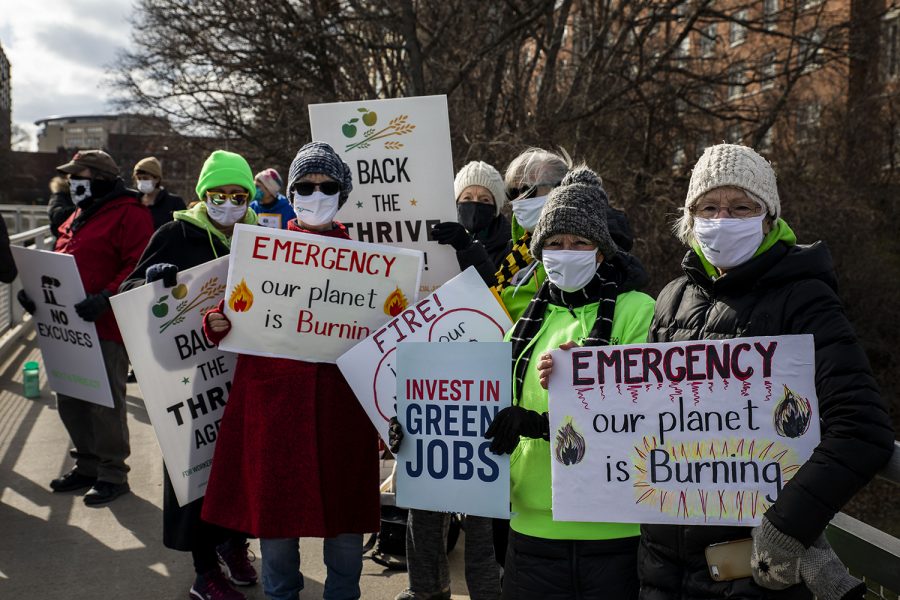Although early signs of spring bring joy to many, they might now be the Earth’s urgent cry for help. If these inconsistent and quickly changing temperatures continue, it means extreme weather conditions and events will only become more prevalent.
Seasons are supposed to have a distinct range of temperatures. We Iowans must no longer settle for saying — “Welcome to the Midwest” — when temperatures suddenly go from 73 degrees Fahrenheit and sunny to 30 degrees Fahrenheit and windy, because it isn’t just the Midwest anymore — it is everywhere. The record-setting warmth of February is just more proof that we are amid a climate crisis. According to Smithsonian Magazine, each month of 2023 from June to December showed temperatures that were the hottest on record.
The next time you’re outside enjoying abnormally nice weather, maybe sitting on your patio indulging in a good book or taking an evening stroll around town, think about how in 2023, the U.S. faced 28 weather and climate disasters that each surpassed $1 billion in damages, according to the National Centers for Environmental Information. The total costs of disasters in the U.S. that year amounted to $92.9 billion.
This crisis is not only costing us money but lives. Climate change can directly lead to casualties due to extreme weather conditions like heat waves, storms, and floods. Climate change can also lead to the spread of disease through the disruption of food and water supplies.
If the world continues to heat up, countless people will face consequences. According to the World Wide Fund for Nature, or WWF, by 2050, rising sea levels could impact 1 billion people. By 2100, coral reefs will have experienced extreme bleaching and degradation due to rising water temperatures. Ice-free Arctic summers will threaten the lives of millions of animals. We will experience heat waves of extreme temperatures every five years. More than half of existing plant and animal habitats will be lost.
I will admit that I, too, was excited to see the temperatures in the 60s at the end of February, but then reality hit. This isn’t normal, and it shouldn’t be the “new” normal. We humans are the sole culprit of Earth’s destruction. According to the National Oceanic and Atmospheric Administration, human actions, specifically the releasing of greenhouse gases, have undeniably caused global warming and abnormal weather conditions.
A single U.S. citizen releases an average of 20 tons of greenhouse gas emissions annually, according to the WWF. This is 10 times the amount for an average person in India. Most of the emissions come from transportation, electricity, and the food system.
In the last 100,000 years, 2023 has been among the hottest years on record. As reported in The New York Times, Carlo Buontempo, the director of the European Union climate monitor, said “there were simply no cities, no books, agriculture or domesticated animals on this planet the last time the temperature was so high. ”
So, are we doomed from the effects of climate change? Not yet, but if nothing changes soon, we will be. Every degree the Earth’s temperature raises poses more danger to humanity as we know it. However, these increasingly high global temperatures would start to level off if we were to stop releasing greenhouse gases today, according to NASA.
Nice temperatures come and go, but we only have one Earth. Reducing your carbon footprint is the only way to be a part of climate solutions. It is time to act now.










